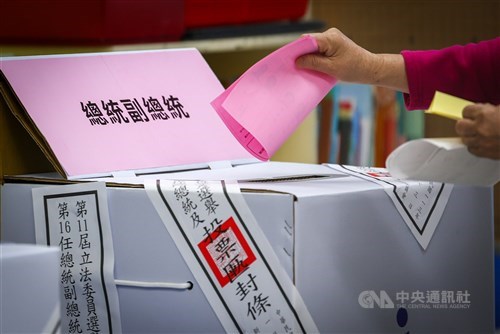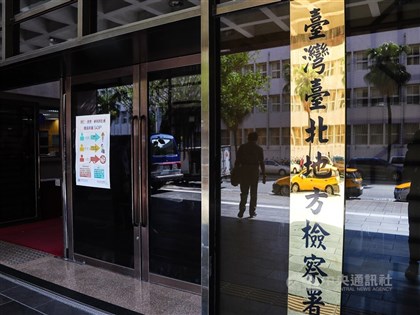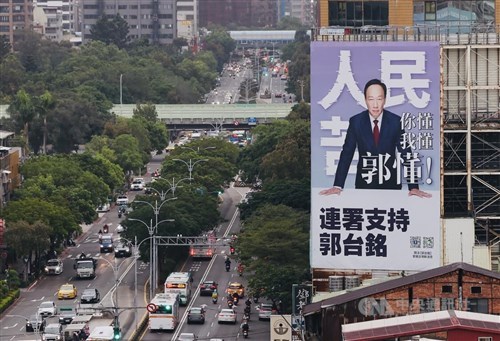ELECTION 2024/Voters backing TPP's Ko shows distrust of DPP and KMT: Analyst
01/14/2024 10:12 PM
The 3.69 million votes garnered by Taiwan People's Party (TPP) Chairman Ko Wen-je (柯文哲) in Saturday's presidential election reflected the "distrust" felt by many young people towards the country's two major parties, a Malaysian analyst said Sunday.
(Full text of the story is now in CNA English news archive. To view the full story, you will need to be a subscribed member of the CNA archive. To subscribe, please read here.)
More in ELECTION 2024
![5 suspects, including association head, indicted for election law breach]() 5 suspects, including association head, indicted for election law breachThe head of a new immigrant association and four other people have been indicted for suspected violations of Taiwan's election law as well as the Anti-Infiltration Act, according to the Ciaotou District Prosecutors Office in Kaohsiung.03/07/2024 08:11 PM
5 suspects, including association head, indicted for election law breachThe head of a new immigrant association and four other people have been indicted for suspected violations of Taiwan's election law as well as the Anti-Infiltration Act, according to the Ciaotou District Prosecutors Office in Kaohsiung.03/07/2024 08:11 PM![Taipei prosecutors indict 7 in Terry Gou signature-buying case]() Taipei prosecutors indict 7 in Terry Gou signature-buying caseTaipei prosecutors on Tuesday indicted seven people for stealing ID numbers from e-commerce sites to help business tycoon Terry Gou's (郭台銘) presidential petition drive last year.03/05/2024 05:52 PM
Taipei prosecutors indict 7 in Terry Gou signature-buying caseTaipei prosecutors on Tuesday indicted seven people for stealing ID numbers from e-commerce sites to help business tycoon Terry Gou's (郭台銘) presidential petition drive last year.03/05/2024 05:52 PM![Pingtung Council speaker indicted in Terry Guo signature buying case]() Pingtung Council speaker indicted in Terry Guo signature buying casePingtung County Council Speaker Chou Tien-lun (周典論) has been indicted on suspicion of buying signatures for business tycoon Terry Gou's (郭台銘) presidential run, the Pingtung District Prosecutors Office said Wednesday.02/21/2024 09:14 PM
Pingtung Council speaker indicted in Terry Guo signature buying casePingtung County Council Speaker Chou Tien-lun (周典論) has been indicted on suspicion of buying signatures for business tycoon Terry Gou's (郭台銘) presidential run, the Pingtung District Prosecutors Office said Wednesday.02/21/2024 09:14 PM
Latest
- Society
2 men detained in 2023 Nantou murder case
12/17/2025 09:10 PM - Cross-Strait
Russia could support China attack on Taiwan: Taiwan security chief
12/17/2025 08:47 PM - Society
Record 13.8 tons of illegal drugs seized in 2025: CGA
12/17/2025 08:01 PM - Politics
Suspended Hsinchu Mayor to return to post Thursday
12/17/2025 06:46 PM - Society
Prosecutors appeal acquittal of Indigenous men in killing of black bears
12/17/2025 06:18 PM


